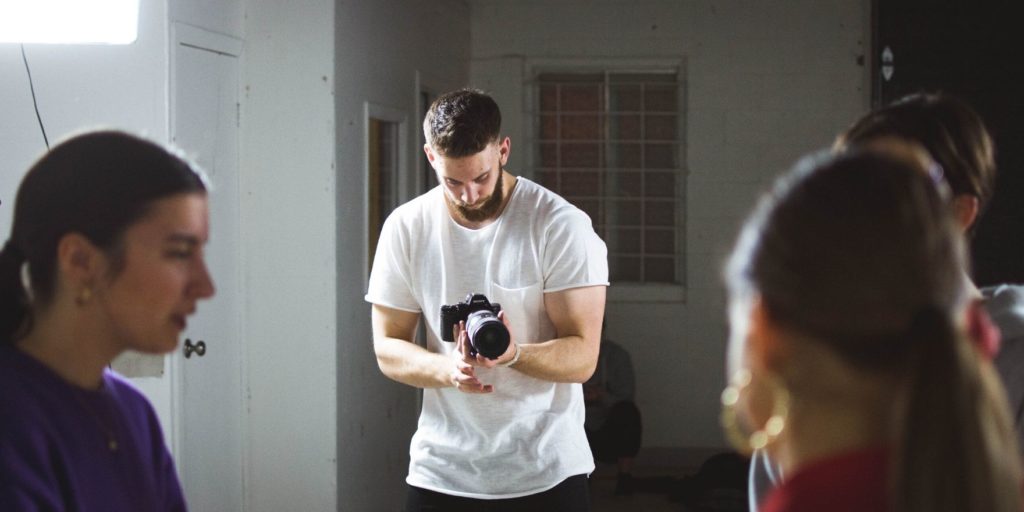Just because independent filmmaking is becoming more accessible, it doesn’t necessarily mean that it’s getting any easier. In fact, a lot of the time it’s because every Tom, Dick, and Harry with a camera in their hand wants to make movie magic that the process has become so goddamn hard.
But as every weathered industry buff will tell you: where there’s a will, there’s a way. All you need is some grit, creativity, and these uber helpful tips showing you how to overcome the biggest challenges in the film biz!
Summary
The Biggest Frustrations of Independent Filmmaking
1. Lack Of Funding

Trying to raise funds for your project is the hardest, least enjoyable part of the entire filmmaking process. It’s also one of the most essential. So unless you’re a millionaire, a billionaire, or one of those Coppola kids, you’re going to have to get pitching.
Solution: Crowdsourcing is the go-to for the vast majority aspiring filmmakers but before going this route, be sure to try your luck on Slated—a film financing platform that connects creators to big-money investors. Also, look into what filmmaking grants are available.
If you don’t mind taking a backseat role in the production process, you could also try submitting your screenplay or TV series concept to Amazon Studios. They accept submissions on a rolling basis.
2. Turning a Profit

Getting people to pay for video content in this post-DVD, digital media-saturated world is a massive challenge. But it’s not entirely impossible either.
Solution: Know which video monetization platforms will work for your content. Beyond YouTube and Vimeo, there are a plethora of other video hosting sites out there. You just need to pick the right one for your genre.
If it’s advertising or business marketing you’re into, check out Wistia, Vidyard or Brightcove.
If you’re in the how-to business world, then you’re probably better off with something like Unscreen, a charge-what-you-want video hosting site that wheels and deals in fitness, educational, and corporate training videos.
Happen to shoot any newsworthy footage lately? Great, then why not try your luck with NewsFlare, a video licensing site that’ll buy up anything with viral potential.
And lastly, for all you independent filmmakers out there, all your of Christmases came early this year with the launch of SeekaTV, a monetized streaming platform independently created web series.
Once you have your video content uploaded onto your platform of choice, the next thing you’ll need to do is make sure people watch it. Which brings us to…
3. Attracting an Audience

With the advent of digital production, it’s never been easier to make a film. Paradoxically, it’s for this exact same reason that it’s never been harder to get an audience for your film. Making your content stand out in an already very saturated digital media marketplace is no small feat and requires more effort, money, and careful planning than ever before.
Solution: Find your niche audience. Take the time to work out who your film will appeal to and market it only (repeat: only) to them. Anyone else and you’ll be wasting your distribution dollars. As for the marketing channels themselves, look no further than social media and Google Ads.
And if it’s a cinema audience you want, be sure to check out Tugg—a platform that helps independent filmmakers schedule a screening in local cinemas on the basis that it sells an adequate number of tickets.
4. Less Opportunity to Specialize

The budgetary restraints of independent filmmaking mean that more often than not, you and your fellow crew members will be required to wear multiple hats on set. While this might be fun for like, the first five minutes, it ultimately robs you of the opportunity to specialize in your chosen craft and work your way up the production food chain.
Solution: First things first, you should definitely be making sure that that the production credits you receive are always reflective of the role you signed up to do. Secondly, if you find you’re repeatedly getting asked to play the role of director and boom mic operator or director and makeup artist, then it might be time to sit down with your producers and clarify what it is you are and aren’t willing to do before diving into a new project.
Alternatively, get more people involved! If there are additional roles on set that need to be filled, see if you and the other crew members can bring some friends along for some free labor.
5. Content Originality

One of the toughest things about screenwriting is the ever-present, niggling thought that every good story idea has already been taken. And given the amount of sequels coming out of Hollywood each week, it’s a valid concern.
Solution: Quit doubting yourself. Yes, a lot of great ideas have been exhausted, but there’s still an infinite amount out there. You just need to be uninhibited enough to come up with them. In other words, let your mind wander into the realm of the farfetched (Westworld), the dark and twisted (Saw), and the super kooky (Unbreakable Kimmy Schmidt) and see what happens!
We know you don’t need us to tell you that filmmaking is really, really hard. Because chances are, if you’ve read this far, you’re one of the few people who’s taken it up and actually stuck with it. (We’re sending a million virtual high-fives your way right now!).
On that note, if you have any other independent filmmaking frustrations you’d like to vent about or offer advice on, we’d love to hear about them in the comments section below!



























